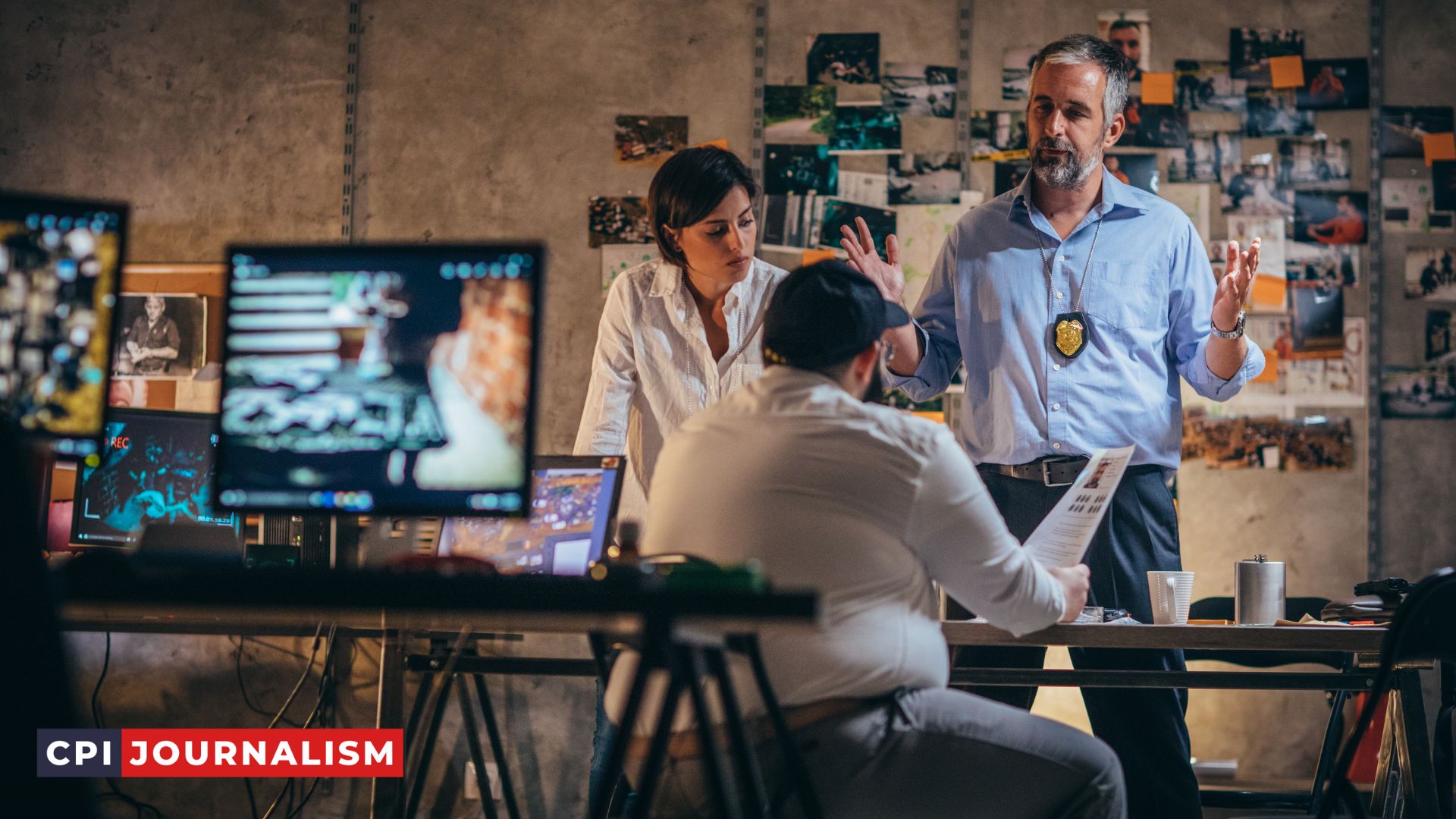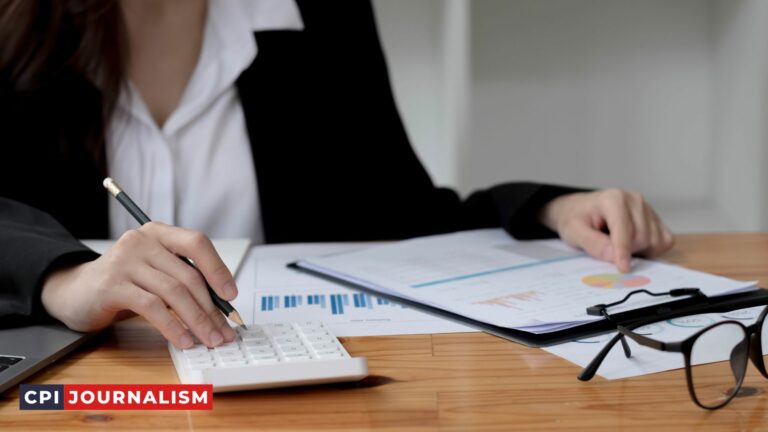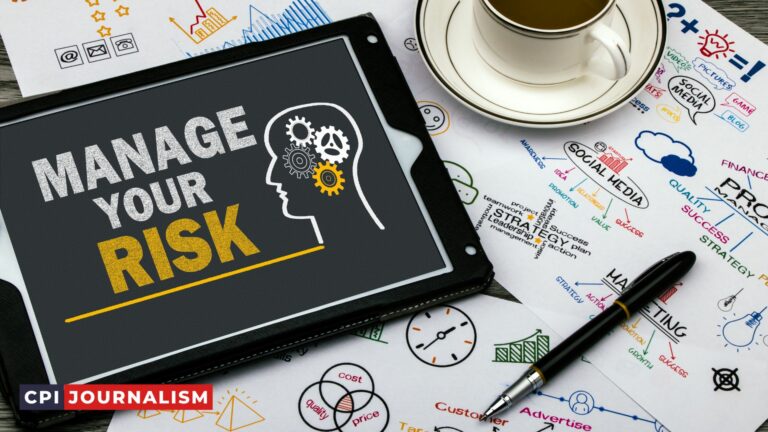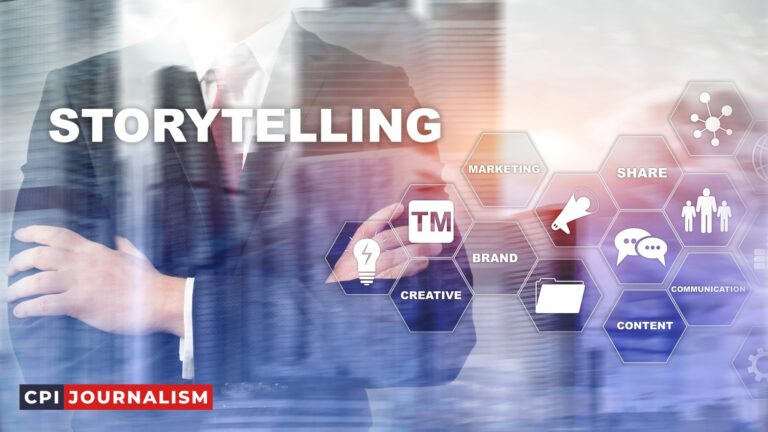What Are the Key Skills and Techniques Used in Investigating Journalism
As an experienced journalist, I am often asked by aspiring journalists what key skills and techniques are used in investigative journalism. Investigating journalism requires a unique set of skills and techniques to uncover the truth.
In this article, I will discuss some of the key skills and techniques used by experienced investigative journalists in their work.
I will break down the techniques used to uncover the facts and explain how these skills can be utilized to ensure an effective and accurate investigation. By the end of this article, you will have gained the knowledge to become an effective investigative journalist.
A. Definition of Investigative Journalism
Investigative journalism is a type of journalism that focuses on deep-diving into a story, going beyond the surface-level facts and uncovering important information that often goes unreported.
It requires a journalist to go beyond simply collecting facts and instead analyze the facts to reveal a deeper story. Investigative journalism often involves uncovering hidden or unknown facts, as well as researching and verifying existing facts.
It is also often used to expose government corruption, corporate wrongdoing, and other unethical practices.
In many cases, investigative journalism relies on investigative techniques such as interviews, document analysis, and research. It also typically involves a lengthy process of researching, interviewing, and cross-checking information to verify its accuracy.
Investigative journalism is often conducted in-depth, requiring the journalist to spend a significant amount of time on the story. It is this in-depth approach that sets investigative journalism apart from other forms of journalism.
By its nature, investigative journalism is often difficult and time-consuming. It requires a journalist to be resourceful, creative, and persistent in uncovering the facts.
Investigative journalism is a unique and important form of journalism, as it allows journalists to shed light on important issues that would otherwise remain hidden.
B. Overview of Key Skills and Techniques Used in Investigating Journalism
Investigating journalism requires a variety of skills and techniques in order to uncover the truth and tell a story that is both compelling and accurate.
Experienced journalists must be able to gather and analyze information, identify reliable sources, and craft compelling stories.
Below is an overview of the key skills and techniques used in investigating journalism.
1. Information Gathering: Gathering information is a fundamental skill for journalists, as it is at the core of investigative reporting.
Journalists must be able to identify and interview reliable sources, conduct comprehensive research, and analyze data.
It is also important for journalists to know how to access public records and databases, as this can provide a wealth of information that may not be available through other sources.
2. Analytical Thinking: Investigative journalism requires analytical thinking in order to make sense of the gathered information and uncover the truth.
Journalists must be able to interpret data, draw conclusions, and identify patterns. They must also be able to think critically and ask the right questions in order to get to the heart of a story.
3. Source Evaluation: Being able to evaluate sources is an essential skill for journalists. It is important to be able to identify reliable sources and to recognize when a source is not credible.
Journalists must also be able to assess the credibility of a source’s claims and determine if the information they are providing is accurate and truthful.
4. Storytelling: Investigative journalism is all about telling a compelling story. Journalists must be able to craft a narrative that is both engaging and informative. They must be able to structure the story in a way that is easy to follow and draws the reader in.
These are just some of the key skills and techniques used in investigating journalism. With experience and practice, journalists can hone these skills and become proficient in uncovering the truth and telling powerful stories.
Research Skills
Research skills are essential in investigative journalism, as they enable journalists to uncover new information and uncover the truth. Experienced investigative journalists have developed a range of research techniques that they employ to gather data and information to support their stories.
One of the most important research skills is the ability to access information from a variety of sources. This includes both online and offline sources, such as databases, public records, interviews, and documents.
Journalists must also be able to analyse the information they have gathered, to identify patterns and trends that can help to build a picture of the story.
Another critical research skill is the ability to spot potential stories and develop questions to answer.
Experienced investigative journalists are able to identify potential sources of information and use their research skills to uncover relevant facts and data. They are also able to use their research skills to ask the right questions to uncover the truth.
Finally, investigative journalists must be able to verify information and check the accuracy of their stories. This involves verifying facts and figures, conducting interviews, and double-checking sources to ensure accuracy.
Overall, the key research skills required in investigative journalism are the ability to access and analyse information from a variety of sources, spot potential stories, and verify information. These skills are essential to uncovering the truth and producing accurate stories.
A. Identifying and Verifying Sources
One of the most important skills and techniques needed in investigative journalism is the ability to identify and verify sources of information. This is critical in order to ensure that the information gathered is accurate and reliable.
When it comes to identifying sources, it is important to consider the credibility of the source. It is important to ask questions such as whether the source has any vested interests in the topic being investigated.
It is also important to consider whether the source has the necessary expertise to provide accurate information.
Once a reliable source has been identified, then the journalist needs to verify the source. This involves checking the source’s credentials and assessing the accuracy of the information they provide.
It is also important to consider the context in which the information was provided, as this can help provide insights into the veracity of the information.
In addition, when verifying sources, it is important to consider any potential bias in the source’s information. For instance, if the source is an advocate for a particular cause, then this could impact the accuracy of the information they provide.
As such, it is important to ensure that any information being used is from a neutral and unbiased source.
Finally, when it comes to identifying and verifying sources, it is important to remember to use multiple sources of information. This will ensure that the information gathered is accurate and reliable, and will also help to provide a more complete picture of the issue being investigated.
B. Analyzing Data
Analyzing data is a key skill and technique used in investigative journalism. It involves sifting through large amounts of data to uncover patterns, trends, and hidden stories. In order to do this effectively, journalists need to be able to combine their investigative skills with data analysis.
Data analysis involves collecting and organizing data, cleaning it up, and running various statistical tests to reveal patterns and stories.
This can be done through a variety of tools and software, including Excel, SPSS, and Tableau. It also requires working with spreadsheets, graphs, and tables in order to gain a better understanding of what the data is telling you.
Journalists must be able to interpret the data in order to draw meaningful conclusions. This means being able to identify correlations, outliers, and trends in the data. It also requires having an eye for detail, in order to identify patterns that might not be immediately obvious.
In addition to the data analysis skills, investigative journalists must also be able to think critically about the data. They need to be able to ask the right questions, think beyond the data, and come up with creative solutions to uncover the truth.
Finally, investigative journalists should also be familiar with data visualization techniques. Data visualization is the process of transforming data into charts, graphs, and maps in order to better understand the data and make it easier to interpret. This can be done through tools such as Tableau and Power BI.
By combining their investigative skills with data analysis and data visualization techniques, investigative journalists can uncover stories and truths that would otherwise remain hidden.
C. Utilizing Technology
Technology has become an increasingly important tool for investigative journalists over the past few years. With the advances in digital media, journalists now have access to a myriad of tools and resources to assist them in their research and investigative efforts.
First and foremost, journalists should become familiar with the various types of software and technology they can use to aid their investigations. This includes specialized search engines, data mining tools, and even artificial intelligence (AI) algorithms.
Search engines like Google, Bing, and DuckDuckGo can be used to quickly search for documents, news articles, and other sources of information. Data mining tools can be used to analyze large datasets and uncover patterns and correlations in the data.
AI algorithms can be used to detect anomalies or trends in large datasets that could reveal important information.
In addition to these tools, social media can also be a very helpful resource for investigative journalists. Social media platforms like Twitter, Facebook, and Reddit can provide valuable information for journalists to follow up on.
For example, journalists can often find leads and tips from users on these platforms.
Finally, journalists should also be familiar with the principles of data security and privacy. As journalists use technology to access confidential information, they must be aware of the potential risks and take the necessary steps to protect the data they access.
Journalists should use encryption, secure data storage solutions, and other measures to ensure that the data they access is secure.
Overall, technology can be an invaluable tool for inD. Utilizing Social Mediavestigative journalists. By familiarizing themselves with the available tools and technologies, journalists can more effectively gather, analyze, and present their findings to the public.
D. Utilizing Social Media
Social media has become an essential tool for investigative journalism. With the wide range of platforms available, it can be a powerful way to gain access to information and uncover stories.
It is important to understand the basics of social media and how to use it to your advantage. Firstly, it is essential to have a good understanding of how each platform works and the different tools available. Knowing how to use the platforms effectively and efficiently is key.
It is also important to understand the language of each platform and the nuances of each one. Knowing the culture and expectations of each platform will help you to engage effectively with your target audience.
Social media can be a great way to find out what people are talking about, what people are interested in, and to build relationships with sources.
It is important to use the various search tools to find out what people are saying about a particular topic or issue. This can help to identify potential sources and to create a network of contacts.
Social media can also be a great way to verify information and to fact-check sources. It is essential to maintain a healthy skepticism when it comes to information found on social media and to never take anything at face value.
Finally, social media can be a great way to promote your work and to engage with other journalists. Utilizing the various platforms can help to get your work seen by a wider audience and to create a following.
III. Interviewing Skills
Interviewing is one of the most important skills used in investigative journalism. It is the process of asking questions to people to gather information and build a story.
As an investigative journalist, it is your responsibility to find the right people to interview, ask the right questions, and accurately record the answers.
To ensure an effective interview, start by properly researching the topic and the person you are interviewing. This will help you craft the right questions to get the answers you need. As an investigative journalist, it is important that you remain impartial and open-minded during the interview.
When it comes to questioning, it is important to ask open-ended questions that allow the interviewee to provide more information.
Do not be afraid to ask follow-up questions to get more details. It is also important to remember to listen to the interviewee, and to be respectful and courteous while conducting the interview.
In addition to asking questions, it is important to take notes during the interview. This will help you to remember the details of the conversation and accurately report the story.
To ensure accurate reporting, it is important to double-check and verify the information given by the interviewee. You should also make sure to get the quotes from the interviewee in writing. This will help to ensure that the quotes used in your story are accurate.
Finally, it is important to remember to thank the interviewee for their time and willingness to participate in the interview. This will help to build trust and a positive relationship with your sources.
By using these skills, you can ensure that you are effectively gathering the information needed to write a compelling investigative story.
A. Establishing Rapport
Establishing rapport is a crucial skill for investigative journalists. It can help open doors and build trust with sources, making them more likely to share information.
The first step in building rapport is to create a safe and comfortable environment for the source. This can be done by actively listening and being respectful of the source’s opinion.
Showing genuine interest in their story, as well as expressing empathy and understanding, can also be effective in building rapport.
It is also important to be mindful of cultural and social norms. A journalist should research the culture of the source and take time to understand their perspective. This can help build trust and make the source more comfortable sharing their story.
In addition to being respectful, it is important to be honest and transparent with the source. Explain the purpose of the investigation, the process of the investigation, and any potential consequences that may arise from speaking with the journalist.
Finally, it is important to build a relationship of mutual trust and respect. This can be done by being consistent, reliable, and dependable. A journalist should keep their word, follow through with promises, and maintain a professional demeanor.
By utilizing these techniques, a journalist can establish rapport with the source and create an environment for a fruitful investigative experience.
B. Asking the Right Questions
Asking the right questions is one of the most important skills and techniques used in investigative journalism. By honing this skill, journalists can uncover valuable information and uncover the truth behind a story.
The first step in asking the right questions is to have a clear understanding of the story you are investigating. It is important to have a clear goal in mind so that your questions can be directed towards that goal.
The next step is to be creative with your questions. When asking questions, it is important to think outside of the box and ask unique questions that may uncover new facts or perspectives. This can help you to dig deeper and gain a better understanding of the story.

The third step is to be persistent. Investigative journalism often involves asking the same questions multiple times in order to get the answers you need. Asking the same questions in different ways can help you to uncover new information and gain a better understanding of the story.
Finally, it is important to ask questions in an ethical manner. Asking questions in a way that respects the rights of others and that follows legal guidelines is essential to ensuring that your investigation is conducted in an ethical manner.
By honing these skills and techniques, investigative journalists can ensure that they are asking the right questions and uncovering the truth behind their stories.
C. Listening and Observing
Listening and observing are key skills and techniques used in investigating journalism. As an experienced journalist, I know that it is essential to be an attentive listener in order to uncover the facts.
Listening means being aware of the body language and other non-verbal cues that give away information. It is important to observe the environment and recognize any changes in people’s behavior.
When listening and observing, it is also important to be patient and non-judgmental. It is important to be aware of one’s own biases, opinions and preconceived notions, and to be open-minded about the facts. It is also important to be able to ask probing questions and to have an inquisitive mind.
Listening and observing are essential in order to get to the truth. It is important to be aware of the context in which you are listening and observing, and to take notes during the process.
By paying attention to all the details, it is possible to uncover the facts and gain a clear understanding of the situation.
D. Taking Notes
As an investigative journalist, one of the most important techniques you can utilize is taking notes. Taking notes is essential to recording the facts of a story and ensuring that you don’t forget any important details. It’s also an important tool to help you stay organized and avoid confusion.
When taking notes, there are several key techniques that you should keep in mind. First, make sure to take notes as soon as possible after an event or conversation.
This will help you to retain more information and keep your notes accurate. It’s also important to use a methodical approach when taking notes. Write down key facts and points in an organized manner, so you can refer back to them later.
In addition to taking notes during interviews, it’s also important to take notes when researching a story.
Take notes on all the sources you review and make sure to record the information that you found from each source. This will help you to keep track of where you got your facts and information from.
Finally, make sure to keep your notes secure. As an investigative journalist, you could be dealing with sensitive information, so it’s important to ensure that your notes are stored safely and securely. This will ensure that you can continue to work on your stories without fear of your notes being compromised.
By following these tips, you can ensure that you’re taking notes effectively and efficiently as an investigative journalist. Taking notes is an essential part of the investigative process, and following these tips will help you to get the most out of your notes.
IV. Writing Skills
Writing is one of the most important skills for any investigative journalist. A journalist’s writing should be clear, concise, and engaging; it should also be accurate and well-researched.
Here are some key techniques that investigative journalists should use when writing their stories:
1. Pay attention to detail: Investigative journalists should pay close attention to the details of their stories, including names, dates, facts, figures, and locations. It’s also important to read through the story multiple times to make sure it is accurate and complete.
2. Research thoroughly: Before writing a story, investigative journalists should conduct thorough research to ensure that the information they are presenting is accurate and up-to-date.
This includes researching both primary and secondary sources, such as government reports, court documents, and newspaper articles.
3. Use a variety of sources: Investigative journalists should not rely on a single source for their information; rather, they should use a variety of sources to ensure that their story is well-rounded and complete.
4. Keep it organized: Investigative journalists should keep their stories organized and easy to follow. For example, they should use headings, subheadings, and bullet points to make their writing clearly structured.
5. Use active voice: Investigative journalists should use active voice in their writing, as it makes their pieces more engaging and easier to read.
6. Edit carefully: Investigative journalists should take the time to edit their stories carefully, ensuring that there are no spelling or grammatical errors. They should also read their stories aloud to make sure that their writing is clear and understandable.
By following these key writing techniques, investigative journalists can ensure that their stories are accurate, engaging, and impactful.
A. Crafting a Compelling Story
One of the most important skills of an investigative journalist is the ability to craft a compelling story. A good investigative story should have the power to capture the reader’s attention and hold it until the last sentence.
The first step to crafting a compelling story is to conduct a thorough research. The journalist needs to be well informed about the topic in order to be able to provide an accurate and comprehensive account of the subject matter.
This includes gathering information from multiple sources and verifying facts. The journalist also needs to be able to identify the key individuals involved in the story and get their accounts.
Once the journalist has all the necessary information, the next step is to structure the story. This involves creating an outline or a storyboard that will serve as the blueprint for the story.
The structure should be logical and flow naturally. It should also have a clear beginning, middle, and end.
The next step is to write the story. A good investigative story should be written in a clear, concise, and engaging manner. It should be free of jargon and technical language and use vivid description to create a vivid mental image of the events.
Finally, the story should be edited to make sure it is free of factual errors and typos. This is an important step since a single mistake can discredit the story and undermine the journalist’s credibility.
In conclusion, crafting a compelling story is a key skill of an investigative journalist. It requires thorough research, logical structure, and engaging writing. It also requires careful editing to ensure accuracy and credibility.
B. Writing For Different Platforms
Investigative journalism requires the ability to write for different platforms. Investigative journalists must not only be able to write a compelling story but also be able to tailor their story for different audiences and platforms.
For instance, when writing for print media, journalists must be aware of the specific editorial guidelines and tone of the publication. They must also be able to condense complex facts and ideas into concise and engaging stories, while also adhering to the word count limitations.
When writing for digital media, investigative journalists must be able to create content that is visually attractive and easy to read on any device. They must also be able to optimize the content for search engine optimization (SEO) and social media platforms.
Finally, when writing for broadcast media, investigative journalists must be able to write scripts that are clear and easy to understand. They must also be able to take advantage of the audio-visual elements of the medium to create compelling stories that resonate with the viewer.
No matter the platform, investigative journalists must be able to write stories that are engaging, accurate, and that capture the attention of the intended audience.
Writing for different platforms requires knowledge and experience, but with dedication and practice, investigative journalists can hone their craft and become master storytellers.
C. Editing and Revising
As an experienced journalist, I cannot emphasize enough the importance of editing and revising your work. Once you have completed your investigative journalism piece, it is time to go back and review it with a critical eye.
Editing and revising your work is essential for ensuring that your piece meets the highest standards of accuracy and integrity.
Start by checking and double-checking all of your facts, sources, and quotes. Make sure that all of your sources are credible and that the facts that you have included are accurate. If you are not sure, take the time to do additional research to verify the accuracy of your work.

Next, review the structure and flow of your piece. Make sure that your story is well-organized and that it flows logically. Ensure that your piece moves seamlessly between sections and that all of your arguments are well-supported.
Finally, go through your piece one last time to check for any errors or typos. Take the time to read it aloud, as this can help you catch any errors that you may have missed.
Editing and revising your work is an essential step in the investigative journalism process. Taking the time to review your work carefully can help ensure that your piece meets the highest standards of accuracy and integrity.
D. Fact-Checking
Fact-checking is a crucial component of investigative journalism. It is the process of verifying the accuracy of facts and claims made by sources, including people, organizations, and other media outlets. Fact-checking helps ensure that the stories we report are based on facts, not rumors or speculation.
The process of fact-checking involves a thorough review of available information to verify the accuracy of any claims made. This can include researching documents, interviewing experts, cross-referencing sources, and analyzing data.
In addition to verifying facts, fact-checking can help uncover inconsistencies in reports or statements made by sources. When interviewing sources, journalists should always ask follow-up questions to confirm the accuracy of their claims.
It is also important to consider the context of any information presented. For example, a claim may be factually accurate, but it may be misleading if it’s presented out of context.
Finally, fact-checking should be done in a timely manner. Journalists should strive to be accurate and up-to-date with their reporting.
Fact-checking is an essential part of investigative journalism. It requires practice and patience, but it is a critical skill for ensuring accurate and ethical reporting.
V. Legal and Ethical Considerations
When it comes to investigating journalism, it is essential to adhere to legal and ethical considerations. As an investigative journalist, you must ensure that your work complies with the laws and regulations of the country in which you are working.
Furthermore, you must ensure that your work is not in violation of any copyright laws. Additionally, you must take care to ensure that your activities do not trespass into any private areas or break any confidentiality agreements.
In addition to the legal considerations, it is also important to consider the ethical implications of your work. As an investigative journalist, it is important to ensure that you are not invading people’s privacy or misrepresenting any facts.
Furthermore, you should always ensure that you are accurately representing the facts and that you are not promoting any personal agendas.
Finally, you should ensure that you are always honest and transparent about your sources. You should disclose any potential conflicts of interest when reporting on a story.
Additionally, you should always respect the confidentiality of your sources, unless it is absolutely necessary to reveal their identity.
By adhering to these legal and ethical considerations, you can ensure that your investigative journalism is conducted in a responsible and professional manner.
A. Understanding The Law
Understanding the law is an important part of being a successful investigative journalist. Knowing the different laws around libel, slander, privacy, freedom of speech, and obscenity can help you identify potential sources of information and how to use them safely.
When gathering information, it is essential that you understand the legal implications of what you are doing. You must be aware of the laws surrounding defamation, privacy, and freedom of speech.
This includes understanding the different types of defamation and what constitutes libel or slander, as well as the laws around harassment and invasion of privacy. Additionally, it is important to be aware of the protections given to journalists and the public’s right to know.
It is also important to understand how to properly use sources of information. Knowing the difference between primary and secondary sources, as well as how to use them ethically, can help you to get the most out of your research. Additionally, it is important to be aware of the laws regarding copyright and fair use.
Finally, it is essential to understand the legal implications of publishing your work. This includes understanding the laws around obscenity and censorship, as well as the legal issues around libel and slander.
Being aware of these laws can help you to ensure that your work is legally compliant and protect you from any potential legal action.
B. Maintaining Objectivity
Maintaining objectivity is a key skill and technique used in investigating journalism. Objectivity is the avoidance of bias in the gathering and reporting of news stories. As an investigative journalist, it is your duty to keep your own personal biases out of the reporting and focus on the facts.
In order to maintain objectivity, journalists should strive to be transparent and open to all sides of a story. This means that they should attempt to get as much information as possible from all sources and seek out different perspectives.
It is important to be aware of possible conflicts of interest in the reporting process, such as having a personal relationship with someone involved in the story.
Journalists should also take care to maintain objectivity by verifying all information they receive. Before presenting a story to the public, journalists should double-check facts and sources.
Additionally, it is important to talk to multiple sources in order to get a full picture of the story and to cross-check information.
Finally, journalists should practice fair treatment of sources. It is important to respect the privacy of sources, to preserve the anonymity of sources when appropriate, and to ensure that sources are treated fairly and with respect.
By maintaining objectivity throughout the investigative process, journalists can ensure that the stories they report are accurate and unbiased.
C. Protecting Sources
Protecting sources is one of the most important skills for any investigative journalist. Sources are often the lifeblood of investigative reporting, and can provide invaluable insight into a story. Sources must be protected from legal, political, or economic pressures that could dissuade them from speaking openly.
One of the key techniques for protecting sources is the use of pseudonyms or anonymity. This allows journalists to protect the identity of their sources, while still allowing them to speak freely.
In some cases, journalists may even go as far as using encryption technologies or other methods to protect their sources from possible government surveillance.
Another important technique for protecting sources is the use of legal protection. Journalists should be familiar with the laws in their jurisdiction that protect confidential sources and should also be aware of any other laws that could be used to protect sources.
Journalists should also be aware of any international legal protections that may be available, particularly if they are working on a story involving multiple countries.
Finally, it is important for journalists to be aware of potential ethical implications of protecting sources. Journalists should always strive to be transparent and honest with their sources and should be sure to clearly explain any risks associated with sharing confidential information.
By taking the time to understand the techniques and skills needed to protect sources, investigative journalists can ensure that their sources feel comfortable and secure in providing them with valuable information.
D. Adhering to Professional Standards
As an investigative journalist, it is essential to adhere to professional standards. This means adhering to the ethical codes of conduct set forth by the Society of Professional Journalists and other professional organizations. It also means maintaining objectivity and accuracy in your work.
To maintain objectivity, you must maintain a balanced view of the situation. This means avoiding any preconceived notions or biases that could color your investigation. You should also strive to present all sides of an issue, even if your findings favor one side over the other.
Accuracy is also key. You should strive to be as thorough as possible when conducting research and fact-checking. You should also double-check all sources and verify their credibility. This means seeking out multiple sources for each story, as well as verifying their reliability.
In addition to these standards, it is also important to recognize the legal implications of your work. You should be aware of your rights and responsibilities as a journalist, as well as the laws and regulations that apply to your work.
This includes libel and copyright laws, as well as privacy laws and other regulations.
Finally, you should be aware of the potential risks associated with investigative journalism. This includes the potential for physical danger and the potential for legal repercussions. As such, it is essential to be thoughtful and strategic in your approach.
By adhering to these professional standards, you can ensure that your work is accurate, ethical, and in compliance with the law. This will help ensure that your work is accepted and respected by the public and the media.
VI. Conclusion
Investigative journalism is a vital tool for uncovering truth, justice and accountability. It requires an individual to possess a range of skills and techniques that can be used to research and report on stories.
These include the ability to identify sources, ask probing questions, analyse data, and uncover leads. Investigative journalists must also be prepared to work independently and be resourceful in order to uncover stories that are of public interest.
Investigative journalism is a complex and sometimes daunting task, but with the right skills and techniques, it can be a rewarding and powerful tool for uncovering the truth.
It is essential that those who pursue investigative journalism remain diligent, ethical and professional, and stay true to the principles of journalism.
With the right approach, investigative journalism can be a powerful force for good and a valuable asset to any newsroom.
A. Summary of Key Skills and Techniques Used in Investigating Journalism
Investigative journalism is an important field of reporting that requires a range of skills to uncover and expose the truth. Experienced journalists must have the right combination of knowledge, investigative techniques, and resources to effectively investigate a story.
First and foremost, the journalist must possess a good grasp of the subject matter they are investigating. This means having a thorough understanding of the law, the political and social context, and the necessary research skills to delve deeper into the story.
It is also important for the journalist to think critically and analytically. This includes being able to identify patterns and connections, as well as being able to uncover sources which may not be obvious.
Second, the journalist must have the ability to use a variety of investigative techniques. This includes interviewing witnesses and sources, conducting background research, using Freedom of Information laws and other public records, accessing confidential sources, and using investigative software and databases.
Third, the journalist must have the right resources to conduct an effective investigation. This includes access to reliable contacts, access to high-level documents, and the necessary equipment and technology to support the investigation.
Finally, the journalist must be able to effectively communicate their findings. This includes writing in a clear and concise manner, as well as being able to present the findings in a compelling way.
By combining these skills and techniques, journalists can effectively uncover the truth and report it to the public.
B. Final Thoughts On The Importance Of Investigative Journalism
Investigative journalism is an essential tool for uncovering truth and providing insight into complex societal issues. It is a way to hold power to account, ensure transparency, and allow the public to make informed decisions.
Without investigative journalism, the public would be unable to understand the full scope of important issues in our society.
Investigative journalism is a challenging and often dangerous endeavor. It requires dedication, commitment, and a willingness to take risks in order to uncover and report the truth.
Investigative journalists must have the courage to pursue stories even in the face of opposition from powerful and influential interests.
The importance of investigative journalism cannot be overstated. Investigative journalists are an invaluable resource for uncovering and reporting on important issues and events that would otherwise remain hidden.
They serve as a check and balance on the powerful, and provide a crucial public service. When investigative journalists do their jobs well, it can lead to positive change and justice for those who have suffered from injustice.
In conclusion, investigative journalism is an essential tool for uncovering and reporting on important issues, and for holding power to account.
It is also an important way for journalists to serve the public by providing valuable information and insight.
As such, it is essential that journalists continue to practice and hone their investigative journalism skills in order to ensure that the public has access to the truth.







